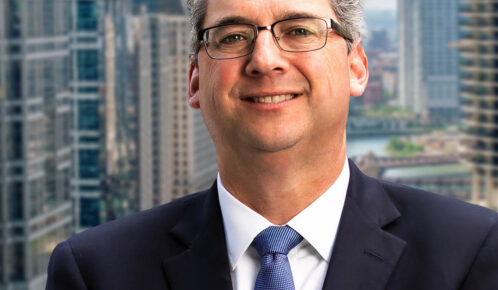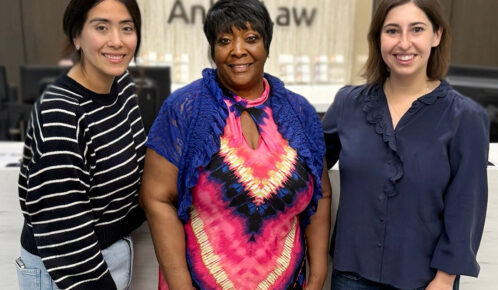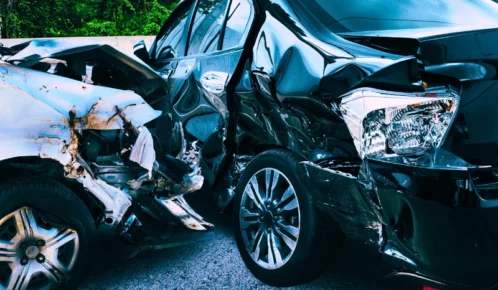Unsafe cleaning practices could create dangerous conditions inside a store or other place of business, causing a slip and fall accident to occur. Property owners and operators are responsible for ensuring that their visitors are reasonably safe from hazards. When they are negligent and someone gets hurt, the slip and fall lawyers at Ankin Law can help to ensure they are held accountable for the harm that they cause.
Table of Contents

Unsafe Cleaning Practices Could Increase Slip-and-Fall Risks
Whenever you are on property as an invitee or licensee, and you get injured, the people or companies who control the premises may have slip and fall injury liability. They are required to implement effective cleaning procedures that prevent slip and fall injuries by standardizing effective remedies when dangerous conditions exist. If you suffer slip and fall injuries that require medical treatment, our slip and fall lawyers can help you file a premises liability claim to recover the cost of damages arising from your injuries.
Dangerous Cleaning Chemicals
It takes more than simply wiping up spills and picking up loose objects on floors to ensure safety for visitors. If unsafe cleaning practices exist, they may trigger slip and fall accidents. Dangerous cleaning chemicals could create hazards that could lead to injuries suffered by customers and other visitors.
Dangerous cleaning chemicals could become caustic and affect footing. They might emit odors that overpower customers. A worker might improperly mix the cleaning chemicals and cause a dangerous chemical reaction. A chemical reaction could endanger workers and visitors.
Even something like overly polishing a tile floor might make it especially slippery and cause customers to slip and fall while shopping in retail stores. Dangerous chemicals might cause allergic reactions, dangerous floor conditions, or other perils that could lead to bodily injuries.
Failure to Warn
When a dangerous condition exists and is known, or should have been known, by the people who are in charge of maintaining a reasonably safe environment, licensees and invitees must be made aware of it. Without adequate warning of a dangerous condition, a slip and fall accident might injure a customer or other visitor on the property.
Failure to warn is a serious violation of the duty of care that people have when they own or otherwise control a property. If a known danger exists, such as a spill on a floor, the duty of care requires the people in charge of the property to warn others.
That could be done simply by placing a caution sign or cone next to the spill. Doing so would satisfy the duty to warn others of the dangerous condition while working to correct it.
Cleaning Schedules
Standardized cleaning schedules and procedures could help to prevent injury accidents from a grocery store fall or another mishap. When workers regularly seek out and correct situations that might cause slips, trips, falls, or other accidents, that demonstrates a commitment to maintaining reasonably safe premises.
For example, a retail store or other place of business should regularly check for and correct dangerous conditions in aisles, checkouts, and other places. If a spill is located, a worker could place a caution sign next to the spill while getting a mop or towel to clean it.
If someone were to enter into the dangerous area while one or more workers are in the process of correcting the situation, the premises liability is reduced. And if a store could show it abides by regular cleaning schedules, even an unknown condition does not necessarily trigger liability for injuries or damages.
Incorrect Cleaning Procedures
It is best to maintain regular cleaning schedules to protect against a mall slip and fall or another injury accident. But if a worker uses incorrect cleaning procedures, that could trigger premises liability for an injury.
Employers must regularly train workers in correct cleaning procedures. Employers also need to provide workers with the tools and materials needed to properly address dangerous conditions, like a spill on the floor.
Neglecting to Clean Up a Spill
Spills are frequent hazards at bars, restaurants, and grocery stores. Property owners are required to promptly clean up spills when they are aware of them. If they neglect to do so and someone gets hurt, the owner or controller can be held liable. A slip and fall case timeline likely would demonstrate the time that a spill occurred versus the time when the injury accident happened.
Determining Fault for Slip and Fall Accidents
Determining liability for a slip and fall accident can be difficult because multiple parties may have been partially responsible for causing the hazardous condition. The location and time of the accident are generally simple to prove. But proving premises liability could be more complicated – especially if the property owner uses contracted cleaning or maintenance companies to address dangerous conditions.
A party that could be held liable for damages might try to deny that a hazard existed, place blame on the injured victim, or minimize the extent of the victim’s injuries. When liability claims are contested, it pays to find the best slip and fall attorney in Chicago to help hold liable parties accountable for damages. A slip and fall lawyer at Ankin Law can help gather evidence to prove the elements of your personal injury claim or lawsuit.
Comparative Negligence
One of the most frequently used defenses against premises liability is comparative negligence. Comparative negligence refers to the liability that the person suffering the injury might share for causing an injury accident. If you ignore a caution sign and step into the middle of a spill, your comparative negligence might eliminate any premises liability claims.
Comparative negligence determines levels of fault between the people in charge of a property and the person who suffers injuries or other damages due to an accident. If you are injured but have comparative liability, any settlement could be reduced by your level of comparable liability. If you are 40 percent at fault, for example, a settlement amount would be reduced by that same percentage.



